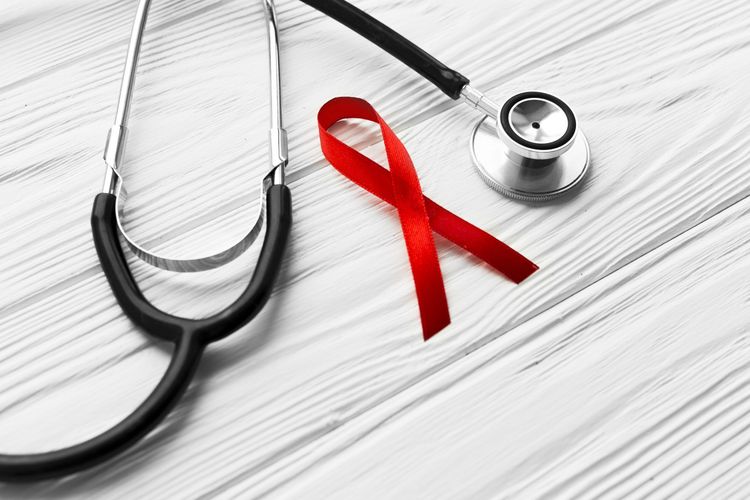Living a healthy and fulfilling life with HIV is achievable with the right strategies and commitment. Advances in medical science have transformed HIV from a life-threatening condition to a manageable chronic illness. Integrating medical treatment with lifestyle choices and mental wellness practices enhances overall health and quality of life for those living with HIV.
Understanding HIV: The Basics
What is HIV?
Human Immunodeficiency Virus (HIV) is a virus that attacks the immune system, specifically targeting CD4 cells, critical to immune response. Without treatment, HIV weakens the body's defenses, leading to increased vulnerability to infections and illnesses.
HIV vs. AIDS
Acquired Immune Deficiency Syndrome (AIDS) is the advanced stage of HIV infection characterized by a significantly compromised immune system. With early diagnosis and effective treatment, progression to AIDS is now preventable.
Early Diagnosis and Regular Monitoring
Importance of Early Diagnosis
Early diagnosis is critical in managing HIV effectively. Timely detection allows individuals to initiate antiretroviral therapy (ART), which prevents the virus from causing significant immune damage. Early treatment improves health outcomes and dramatically reduces the risk of transmission to others.
Regular Health Monitoring
Routine monitoring through CD4 count tests and viral load assessments helps track HIV progression and effectiveness of treatment. Regular medical appointments ensure medications are working properly and allow timely adjustments to treatment plans if necessary.
Antiretroviral Therapy (ART): The Cornerstone of HIV Management
How ART Works
Antiretroviral therapy involves taking medications daily to control HIV replication. ART reduces the amount of virus in the blood to undetectable levels, preventing immune system damage and significantly lowering the risk of transmission.
Achieving Viral Suppression
Consistent adherence to ART helps maintain viral suppression. Achieving and maintaining an undetectable viral load means the virus cannot be transmitted sexually, encapsulated by the principle "Undetectable = Untransmittable" (U=U). This significantly enhances quality of life and relationships.
Adherence Strategies for ART
Adherence can sometimes be challenging due to factors like side effects, forgetfulness, or complex treatment regimens. Strategies for adherence include:
- Using pill organizers or reminders
- Aligning medication schedules with daily routines
- Open communication with healthcare providers about side effects or concerns
- Seeking peer or community support
Nutrition and Physical Health
Balanced Diet and HIV
Nutrition significantly impacts the health and immune function of individuals with HIV. A balanced diet rich in nutrients strengthens the immune system, improves energy levels, and aids medication effectiveness. Focus on fruits, vegetables, whole grains, lean proteins, and healthy fats, limiting processed foods, sugar, and alcohol.
Importance of Hydration
Staying hydrated supports overall health, medication metabolism, and immune function. Individuals with HIV should prioritize drinking sufficient water daily to enhance medication absorption and reduce side effects.
Physical Activity and HIV
Regular physical exercise supports cardiovascular health, strengthens the immune system, and improves mental health. Incorporating moderate-intensity activities like walking, cycling, or swimming can effectively reduce stress, anxiety, and depressive symptoms often associated with HIV.
Mental and Emotional Well-being
Recognizing Mental Health Challenges
Individuals living with HIV often experience heightened risks of depression, anxiety, and stress due to the chronic nature of the illness and associated stigma. Identifying mental health concerns early is essential to ensure proper intervention.
Strategies for Mental Health
Practicing mindfulness, engaging in hobbies, socializing, and seeking therapy or counseling can significantly enhance emotional resilience and overall well-being. Cognitive-behavioral therapy (CBT) and support groups are effective approaches to address HIV-related mental health challenges.
Preventing Opportunistic Infections
Importance of Vaccinations
Vaccinations protect against infections that individuals with compromised immunity are particularly susceptible to, such as influenza, pneumonia, hepatitis, and HPV. Regular vaccinations as recommended by healthcare providers are essential in maintaining optimal health.
Practicing Hygiene and Infection Control
Simple hygiene practices significantly reduce infection risks:
- Frequent handwashing
- Avoiding exposure to sick individuals
- Proper food handling and preparation
- Practicing safe sexual behaviors consistently
Healthy Relationships and Disclosure
Communication and Disclosure
Disclosing HIV status to sexual partners, family, or friends can be challenging yet crucial for maintaining healthy, honest relationships. Communicating openly and clearly about HIV helps to ensure mutual understanding, informed consent, and reduced anxiety or stigma within relationships.
Navigating Stigma and Discrimination
HIV-related stigma remains a significant challenge. Building supportive networks, educating oneself and others, and connecting with support groups help mitigate stigma's emotional and social impact, fostering a more accepting environment.
Lifestyle Factors Affecting HIV Management
Avoiding Substance Abuse
Substance abuse, including drugs, tobacco, and excessive alcohol consumption, negatively impacts immune function and medication adherence. Minimizing or eliminating substance use significantly improves treatment outcomes and overall health.
Adequate Sleep and Rest
Sleep is essential for physical and mental health, particularly for individuals managing chronic conditions like HIV. Establishing regular sleep schedules and creating restful environments help support overall health and enhance immune function.
Building a Strong Support System
Role of Community Support
Social support from community organizations, peer groups, and family provides emotional stability, practical assistance, and encouragement throughout the HIV journey. Engaging with local HIV organizations or online communities fosters a sense of belonging, reduces isolation, and offers practical strategies for managing HIV effectively.
Healthcare Provider Relationships
Developing trust-based relationships with healthcare providers facilitates effective HIV management. Open communication allows individuals to voice concerns, ask questions, and receive personalized guidance tailored to their needs.
Advances and Future Directions in HIV Treatment
Current Innovations in HIV Management
Medical science continues to advance rapidly, introducing long-acting injectable therapies, single-tablet regimens, and promising new medications. These advancements simplify treatment adherence and improve quality of life.
Future Prospects and HIV Cure Research
Significant research continues towards potential HIV cures, therapeutic vaccines, and novel treatments. While still in development, these innovations highlight the importance of optimism and continuous engagement in healthcare for people living with HIV.
Conclusion: Empowering Your Health Journey
Effectively managing HIV involves a comprehensive approach combining medical treatment, physical health, mental wellness, supportive relationships, and lifestyle considerations. Proactively engaging in treatment and adopting positive lifestyle strategies empowers individuals to lead long, healthy, and fulfilling lives. With continuous advancements in HIV treatment and sustained personal commitment, thriving despite an HIV diagnosis is now a practical reality.




